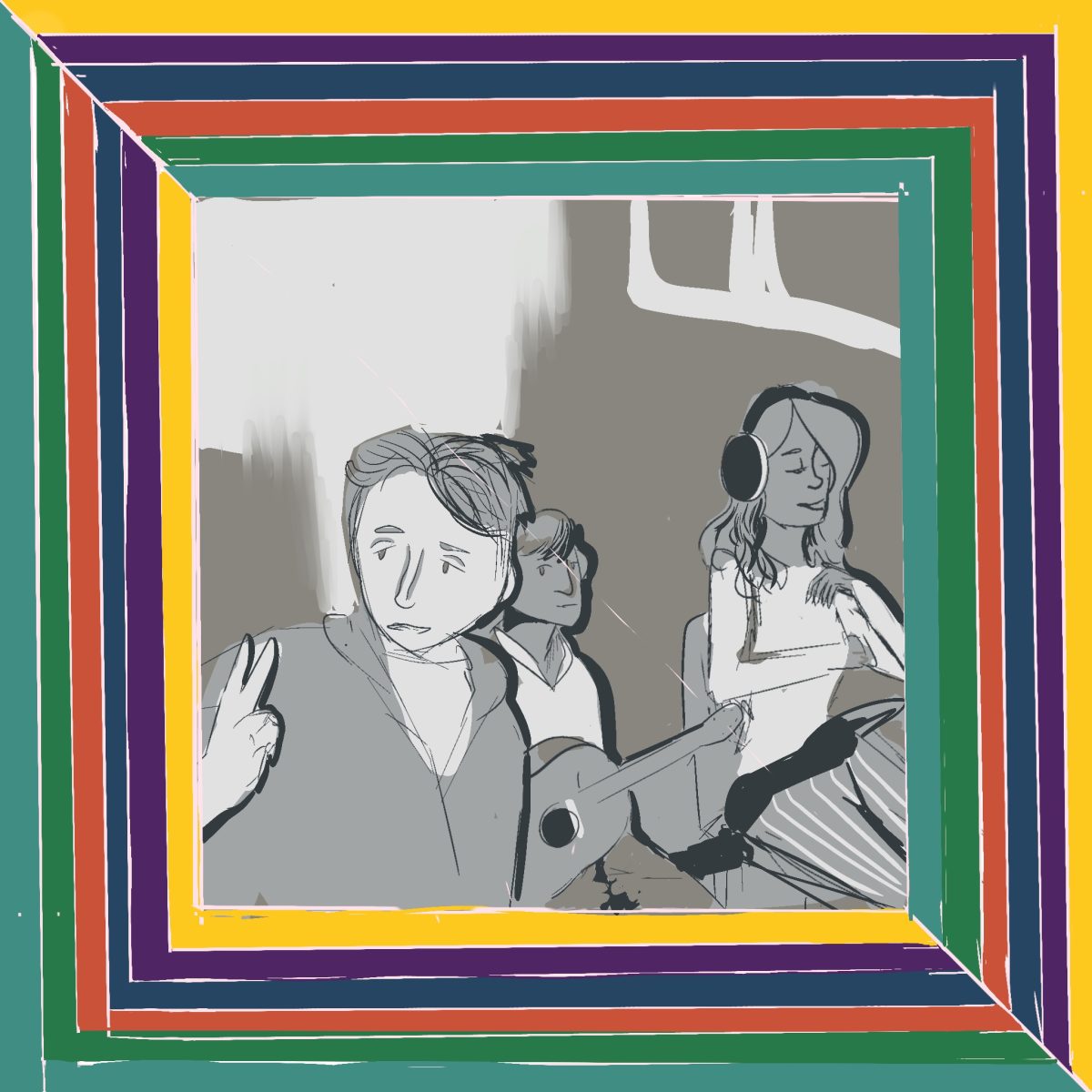About a year ago, I stumbled across “High Moon,” a slightly eerie and whimsical song by the band Oracle Sisters. As I tend to do, I find one song I like from an artist and never end up listening to even half of their discography. A few months later, though, I came across another quite excellent Oracle Sisters song. I decided to break tradition and listen to their entire discography.
Oracle Sisters released their first full-length studio album, titled “Hydranism,” in April of last year. Since its release, I have listened to the album front-to-back dozens upon dozens of times. Though I’ve tried my best, I still cannot seem to get tired of it. “Hydranism” is named after the island of Hydra in Greece, where the band recorded the album. The band had made loose arrangements with a man who had been converting an abandoned carpet factory on the island into a recording studio. When the first large wave of COVID-19 hit in 2020, the band holed up in the studio for two months to record.
The instrumentation in “Hydranism” almost invokes a sense of agoraphobia. It becomes somewhat literal in that a large portion of the atmospheric reverb in the album was simply a natural product of recording in such a large space. The album extensively uses acoustic guitar and piano, with a few instances of electric guitar and saxophone thrown in there for good measure. The actual structure of the songs is beautifully simplistic. Most of what fills in the space are the exquisite harmonies and aforementioned reverb.
I believe “Hydranism” perfectly encapsulates the concept of saudade, defined by the Oxford English Dictionary as a “yearning for something so indefinite as to be indefinable: an unrestrained indulgence in yearning.” “Tramp Like You,” the opening song, perfectly sets this tone for the rest of the album.
Though the word “tramp” generally has a derogatory connotation, it isn’t used quite as such in this case. “Tramp Like You” echoes a longing for the freedom of being anchorless, even if it isn’t the best thing for someone. The chorus lyrics are, “I wanna be a tramp like you // I wanna have all my tales broken // Just like you.” In the second chorus, the word broken is replaced with “tales,” which gives a level of complexity to the lyrics. It recognizes the good and bad of this wandering lifestyle while still yearning for both. Maybe your tales will be broken, but you will also be remembered.
The pandemic is certainly a big influence on the almost melancholy attitude of the album. In fact, many of the songs on the album describe the surrounding world during the time of stillness. “Hot Summer” begins with a declaration of loneliness, “I was alone // In the boarded up streets // The closed signs swung like a poem.” Further on in the album, “Peat Fire Morning” presents a different effect. It harkens back to a sense of childlike antics from simpler and slower times: “Evergreen sways in the salt air singing // We ran like hell till we fell down grinning // Over the hedge to the old bag neighbor // With a face so sour, we should go together.”
“Hydranism” is quite possibly my favorite album. It is definitely my go-to when people ask about my music taste. It occupies a space similar to Fleetwood Mac’s “Rumors” in my mind. “Hydranism” is intentional in its use of space, covers a large range of energy, and has very catchy distinct hooks. It feels best to listen all the way through, which is not something I can say about many other contemporary albums. Every time I finish the album, I sit back with a sense of relief as if I’ve found a spot to rest after a journey of wandering.
Categories:
Diving into ‘Hydranism’ by Oracle Sisters
Why you should give their hypnotic debut studio album a listen (or two)
More to Discover







